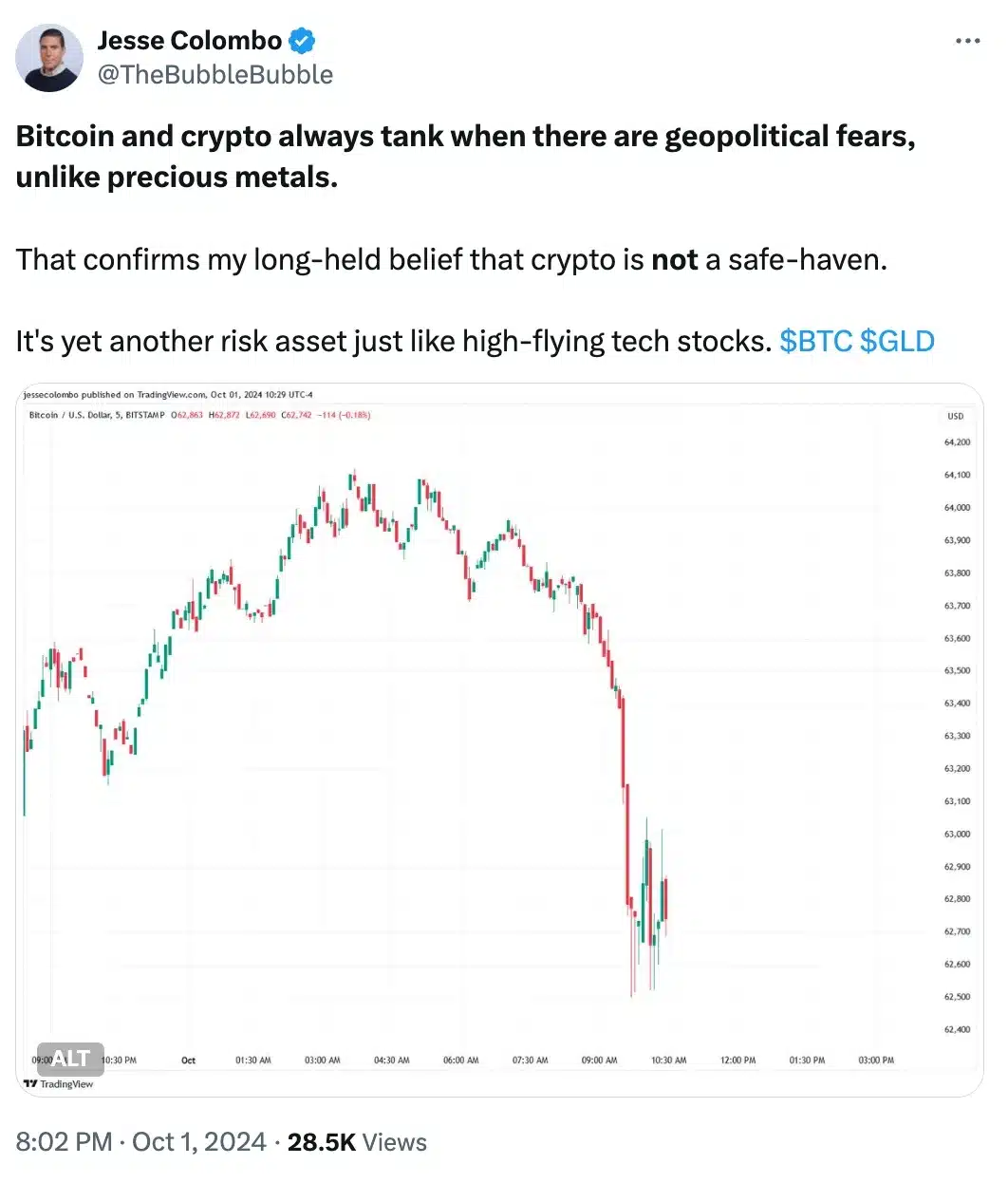Bitcoin ETFs see record outflows – what caused the crash?
What underlying events triggered the sudden outflows from Bitcoin and Ethereum ETFs?

Bitcoin ETFs faced unprecedented outflows of $242.6 million amid rising geopolitical tensions.
- Ethereum ETFs also saw declines, with total outflows reaching $48.6 million by October 1.
After a period of strong inflows, Bitcoin Exchange-Traded Funds (ETFs) experienced a significant reversal, recording record outflows.
Bitcoin ETF Analysis
On September 27, inflows peaked at $494.4 million. However, by October 1, eleven U.S. cash Bitcoin ETFs faced a collective outflow of $242.6 million, marking the largest outflow in nearly a month, following a $288 million outflow on September 3.
Among the hardest hit was Fidelity’s FBTC, which accounted for $144.7 million in outflows alone.
Other significant losses included ARK 21Shares’ ARKB with an $84.3 million withdrawal and Bitwise’s BITB, which saw a $32.7 million outflow.
Meanwhile, BlackRock’s IBIT experienced a positive influx of $40.8 million, marking its fifteenth consecutive day without outflows, reflecting mixed sentiment in the Bitcoin ETF market.
What’s Driving This Decline?
The recent downturn in Bitcoin and cryptocurrency markets is largely attributed to escalating tensions between Israel and Iran.
Iran’s missile strikes in retaliation for Israeli actions against Hezbollah have fueled market uncertainty, leading to significant selling pressure.
This conflict is not new. Earlier this year, Iran retaliated with drone and missile strikes that contributed to an over 8% decline in Bitcoin.
With reports of the current situation worsening, the potential for further negative impacts on the cryptocurrency market remains high.
Jesse Colombo, a precious metals analyst, commented on this situation.
Source: Jesse Colombo/X
Ethereum ETFs Follow Bitcoin’s Lead
As expected, Ethereum ETFs [ETH] experienced a significant decline similar to that of Bitcoin ETFs.
Although the Ethereum ETF did not have a long-term inflow trend like its Bitcoin counterpart, it recently recorded notable inflows. However, by October 1, the total outflows of Ethereum ETFs reached $48.6 million.
Grayscale’s ETHE had the highest outflow of $26.6 million, followed by Fidelity’s FETh and Bitwise’s ETHW, which saw outflows of $25 million and $9 million, respectively.
While most Ethereum ETFs reported zero inflows, CETH from 21Shares and ETHV from VanEck bucked the trend, recording inflows of $1.2 million and $2.7 million, respectively.
Impact of Geopolitical Tensions
It goes without saying that the impact of escalating tensions in the Middle East extended beyond ETFs and affected the entire cryptocurrency market.
For example, the global cryptocurrency market capitalization fell to $2.17 trillion, facing a 4.10% drop according to CoinMarketCap.
The value of Bitcoin decreased by over 3%, while Ethereum experienced a sharper decline of more than 6% within 24 hours.
In contrast, traditional commodities like gold and crude oil saw significant gains. According to Goldprice.org, the price of gold rose by 1.4%, reaching $2,665 per ounce, near its all-time high.
Crude oil prices increased by nearly 7%, reaching $72 per barrel.
Additionally, both bonds and the U.S. dollar strengthened following Iran’s missile attacks on Israel on October 1, highlighting broader market volatility amid geopolitical unrest.
Li Jing, a market strategy consultant at Exness, echoed Colombo’s sentiments when he stated:
The escalation of conflict in the Middle East has driven investors to seek safety in gold, further enhancing its appeal amid market uncertainty.






